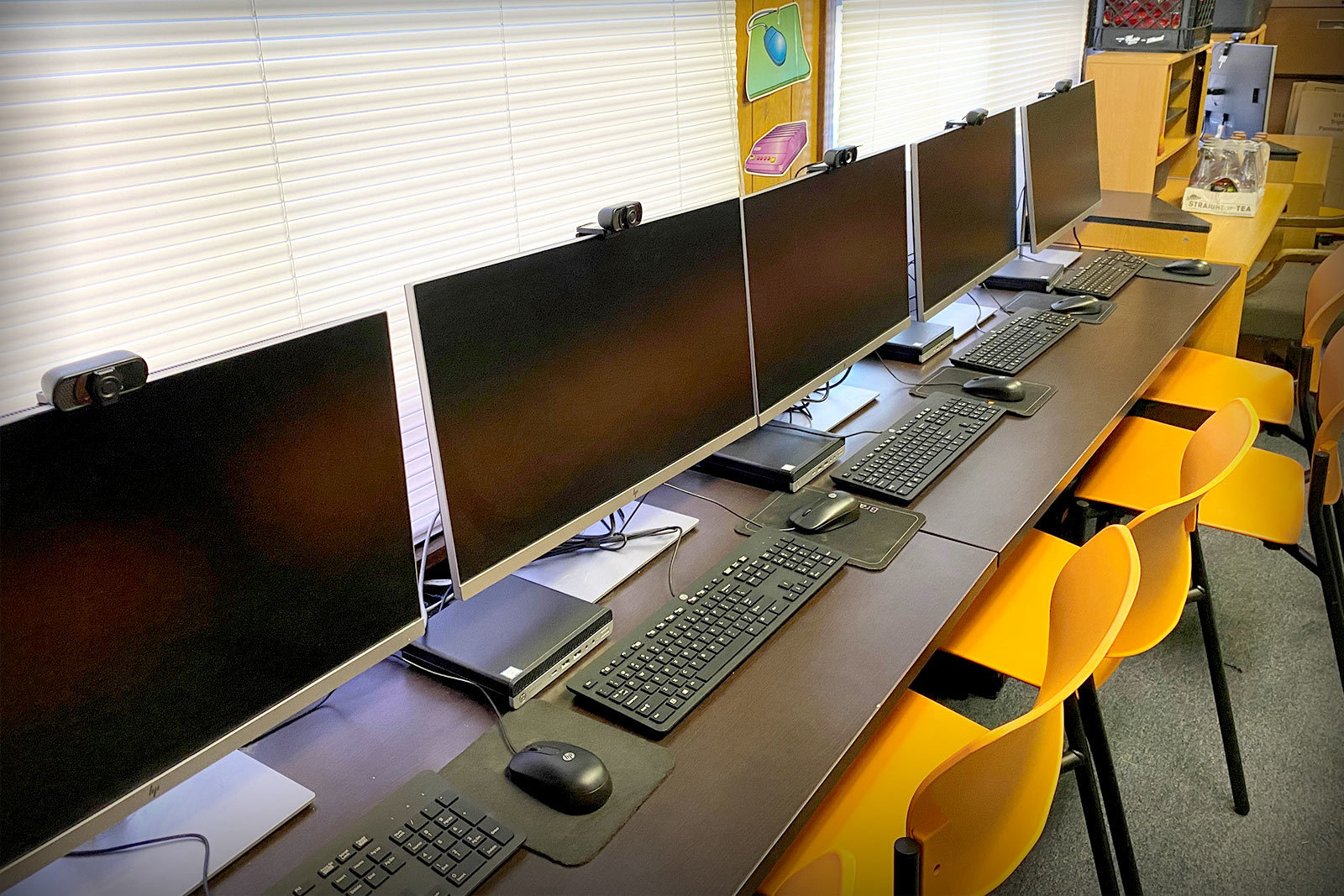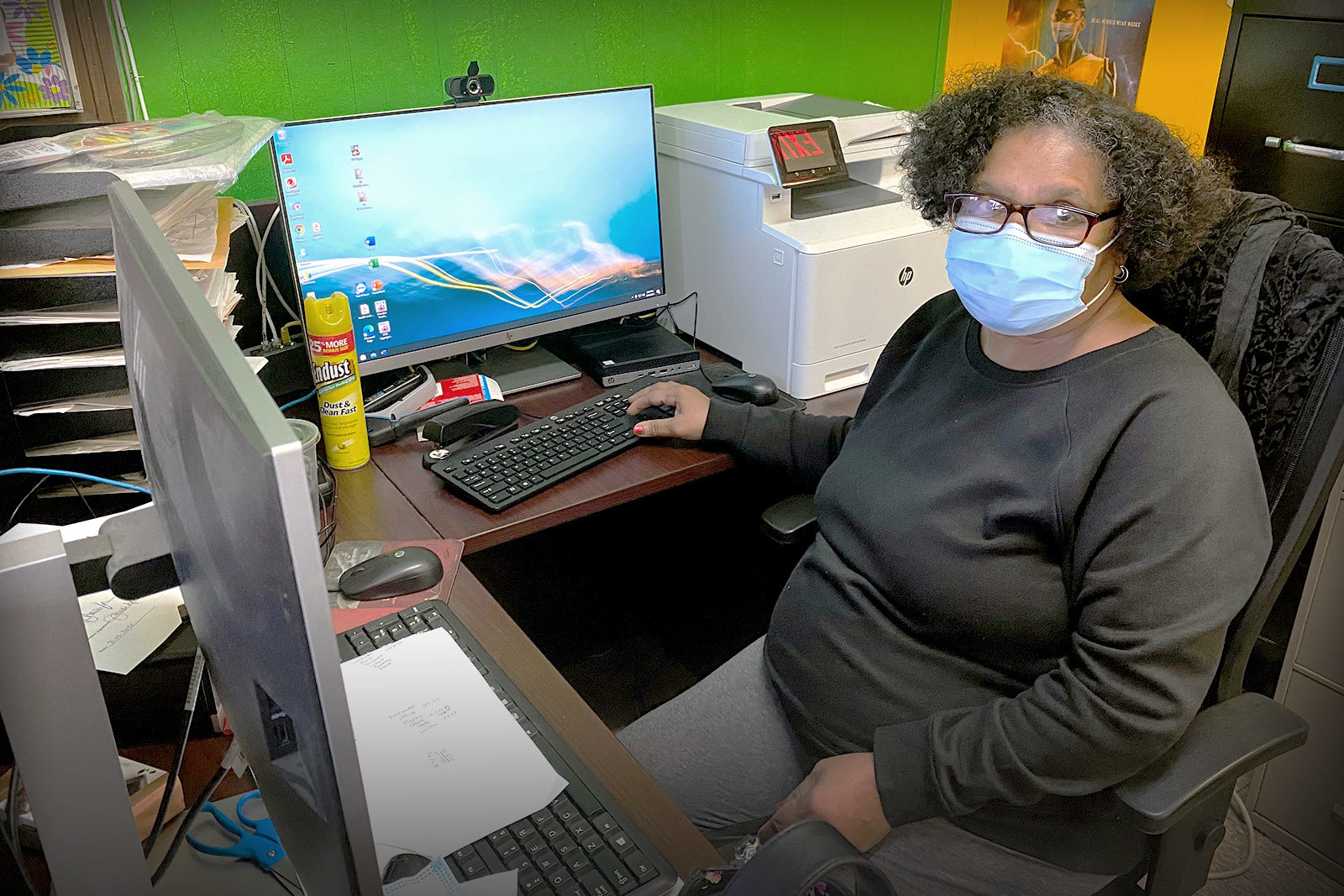It has been said that education is the great equalizer.
When people have access to learning, they have access to opportunities.
Increasingly during the pandemic, education moved online – a safe and socially distant alternative. But an unintended consequence is the online shift widens the gap between students who have consistent access to modern technology – and those who do not.
In Greenville, Mississippi, a riverfront city in the heart of the Delta, the Boys and Girls Club of Washington County (BGCWC) connects students, many from underserved areas, with vital technology resources. And with a recent grant from the Regions Foundation, a nonprofit initiative of Regions Bank that supports community investments, those resources are growing stronger.
“Walt knew our need, and we were so pleased when he and the Regions Foundation reached out to help us,” explained Joan Rowe, chief executive officer of BGCWC. “The new computers made it possible to support our students during this time.”
 The Boys and Girls Club of Washington County provides programs in education, character and leadership development, career development, life skills and more. With funding from the Regions Foundation, the club can incorporate new computers and additional technology into its programs.
The Boys and Girls Club of Washington County provides programs in education, character and leadership development, career development, life skills and more. With funding from the Regions Foundation, the club can incorporate new computers and additional technology into its programs.
Walt is Walt Stephens, Mississippi Delta market executive for Regions Bank. Stephens said the $20,000 grant from the Regions Foundation covered more than new computers. Cameras and other technology essential to helping students excel were all made possible.
“In cities large and small, the Boys and Girls Clubs are on the front lines of connecting today’s students with tomorrow’s opportunities,” Stephens said. “We were determined to help make sure COVID-19 no longer hinders the work that such essential nonprofits are doing. Early on, Regions Bank and the Regions Foundation made a significant commitment to help our communities through the pandemic. This is an example of the impact we can make; this is something that will serve students now and into the future.”
 BGCWC Chief Executive Officer Joan Rowe said COVID-19 shined a light on the computer and technology needs of the club. “Thanks to the generosity of the Regions Foundation, we were able to serve and support our students during the pandemic.”
BGCWC Chief Executive Officer Joan Rowe said COVID-19 shined a light on the computer and technology needs of the club. “Thanks to the generosity of the Regions Foundation, we were able to serve and support our students during the pandemic.”
One of those students is 11th grader Taniyah Parnell. The new technology helped her compete for a big opportunity, one that wasn’t possible just a few months ago.
Every year, students from clubs across Mississippi compete for the Boys & Girls Clubs of America’s Mississippi Youth of the Year designation. It is a tremendous honor simply to compete, but this year’s round of candidate interviews was entirely online. Not a problem for Parnell – not anymore.
“I was excited to represent my club,” Parnell said. “The new computers and camera helped me put my best foot forward to shine. I’m grateful for the opportunity to better myself and see what happens down the road.”
“This is an example of the impact we can make; this is something that will serve students now and into the future.”–Walt Stephens, Mississippi Delta market executive for Regions Bank
Parnell isn’t the only one benefitting. Rowe said the same doors that were opened for Parnell are accessible to all the other students in the program.
“Our members are very happy with our new systems,” she said. “Through the MYFuture application with the Boys and Girls Club of America, students can participate in many digital programming opportunities thanks to the investment the Regions Foundation provided us. This wasn’t possible six months ago.”
The Mississippi Youth of the Year designation ended up going to another contender this year. But Parnell is not discouraged. The experience showed her how technology can connect her with new goals and dreams. With that technology, and advocates like Joan Rowe supporting her, nothing is beyond her reach.
“Students can participate in many digital programming opportunities thanks to the investment the Regions Foundation provided us. This wasn’t possible six months ago.”–Joan Rowe, BGCWC chief executive officer